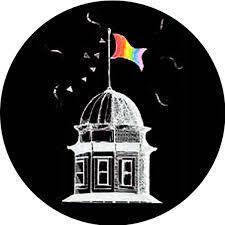Crossing Sherbrooke street to pass through McGill’s Roddick Gates tends to offer newly admitted students the chance to explore a new life at university. When I first saw the majestic stone arch, I felt an overwhelming sense of pride. I was proud of getting myself to the university I knew would set me up well for the future. After giving myself a metaphorical pat on the back, a gush of excitement came over me when I remembered all of my reasons for choosing McGill. Canada had strong queer rights, Quebec would help better my French fluency, and the university embodied liberal attitudes. As I passed under the gates, my eyes fell upon the impressive 19th-century architecture of the Arts building, and immediately, I felt confident that I had found my new home.
However, my optimism in discovering Canadian ways of life dampened when I entered my residence in first year. Though most students were welcoming and just as excited as I was, I found little difference between them and the Europeans from whom I had tried to escape. They had designer, or thrifted, outfits trying to mimic the popular styles, or find their own, and, most of all, they were all very gendered. Most students were also outwardly heterosexual, and those who casually mentioned that they wanted to explore their sexuality were usually women who were influenced by the male gaze. Women who identify with the gaze, like kissing a girlfriend to attract men, abuse their privilege of engaging in queer actions without facing consequences, which has harmful impacts on queer people. When I went clubbing, I feared possible violent oppressions from cisgender men. Witnessing cisgender women kiss others then exacerbated my feelings of marginalization. It was only toward the end of the academic year that I found comfort in new friends who were outspoken about respecting queerness as more than just a heterosexual experiment.
That same year, my experience with gender transition had positive and negative influences. On the one hand, there were students who thought I was “male” rather than “female” and were confused upon introductions when they compared my seemingly “feminine” name to my “masculine” apparel. On the other hand, positive influences included the rare gems of students who I met on nights out who voiced discontent with the gender binary and gave me confidence in my choices of clothes and haircut.
In my second year, gender, sexuality and feminist studies (GSFS) courses rejuvenated my comfort in studying at McGill. Conversations that I had with my professors paved the way for me to understand my gender identity as nonbinary rather than fluid. Course content showed me the nonsense of labels, yet also their vital importance in a world of identity politics. The stories of fellow students that I heard in conferences set my heart ablaze. Once again, I felt more attached to McGill than my own home in France.
With new knowledge comes old truths, and those of Canada were clear: The feminist agendas had not yet been achieved. I had to understand that McGill was part of the institutional barrier that slowed progressive change. For example, feminist discussions are essential for queer rights, but McGill fails to provide adequate resources to the GSFS department, like tenured funding, which mutes its impact on campus. Without a doubt, this reality tarnished the glorious façade of the university that I had set upon my arrival. Yet it sparked a fire within me to fight for something so much more important than an old building made of stone: An equitable society.
As I near the end of my degree, I look across at the Roddick Gates and the Arts building and feel pride for the students who walked in with an opportunity to write a new chapter, and left with a desire to not fit in. With my McGill experience almost over, I feel grateful for being able to acknowledge that “feeling at home” is no longer attached to a place, but within my own body and identity.









This is so amazing!